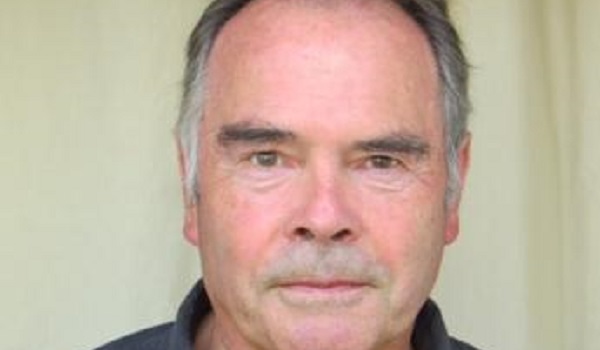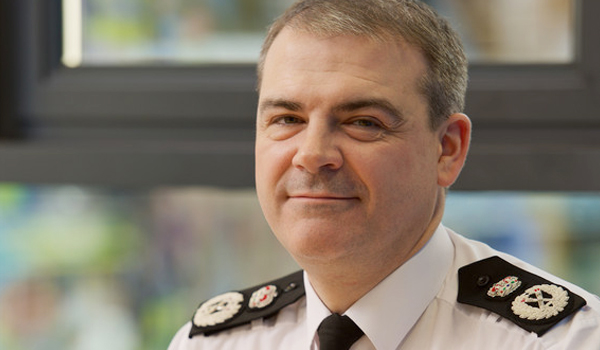Police should prioritise negotiation over routine force to win back trust
Police forces need to negotiate with communities to win back trust or risk getting trapped in a cycle of violence says Mike Hough, Emeritus Professor at the School of Law, Birkbeck, University of London and author of Good Policing: Trust, Legitimacy and Authority.
As a young researcher in 1979, I was out on patrol with two Strathclyde constables in a rough Glasgow housing estate. We drew up alongside half-a-dozen teenagers, who were sitting chatting on a wall – doing nothing illegal whatsoever. One officer told them, “move along, lads”, and they grudgingly shuffled off. When I asked why he had done this, he said: “It’s just what we do.” What they were actually doing was demonstrating that they controlled the streets.
Fast-forward to 2020. The Black Lives Matter movement in the US and protests on this side of the Atlantic have shown how tensions between the police and parts of the community are unresolved and, in some cases, simmering. Black Lives Matter erupted in the US in response to a tragic and seemingly unending series of police killings of black suspects. How American police continue to commit such outrages is a question that remains unanswered.
But this problem is not uniquely American. In the UK, ethnic minority groups are over-represented in deaths in police custody and black suspects are heavily over-represented in stop-and-searches. There were four stop-and-searches for every 1,000 white people last year, compared with 38 for every 1,000 black people.
Control Tactics
The incident in Glasgow and the death of black men such as George Floyd while in police custody, represent two ends of a continuum of policing tactics involving the “performance of street control”. The tactics range from simply moving people on to stop-and-seach. This can be followed by arrest and – occasionally – death. The fatal shooting of Mark Duggan in 2011 and the death of Edson Da Costa in 2017 both led to riots in London.
In public order policing, kettling (where demonstrations are corralled in tight areas) is another tactic of street control. In mainland Europe, requiring people to produce their identity cards is another. The outcome of all these performances of control can range from the anodyne (as in my Glasgow incident) to the tragic, where resistance leads to death.
But why don’t police forces stop overusing these tactics that seemingly do more harm than good, that alienate people and can have tragic consequences? My new book, Good Policing, examines why police sometimes appear to be locked into a vicious cycle of worsening relations between them and the public – especially those from ethnic minority groups. But it is possible for the police to navigate their way out of these traps.
Half an answer is found in long running tensions between traditions of policing by consent and the more “common sense view” that policing is about keeping criminals in check. To borrow a term from political scientists, police are often faced with a choice between hard power and soft power. Hard power involves the deployment of deterrent strategies and coercive force that keep a tight grip on unruly behaviour. Soft power, by contrast, requires supporting people’s commitment to obey the law by winning hearts and minds. But too often, advocates of hard power simply win the argument.
Hard power traps
Police fall into these traps when they overuse their power so much that there is no longer scope for the kind of soft power tactics which motivate consent to the rule of law. When people are routinely treated with disrespect, they lose trust in the police and no longer feel that the cops are on their side. When this happens, police often respond with a policing style that helps them maintain a tight grip on the public. This will involve routinely demonstrating that they are in control (as I saw in Glasgow) and overwhelming any resistance to this control with force, if it is challenged.
I believe that police departments in multi-racial cities in the US are stuck in these hard power traps. With intense mutual distrust between cops and people of colour, the opportunities for deploying soft power policing may have been squandered over the years – if they ever existed in the first place. The police may believe that coercive hard power tactics are, realistically, all that are available to them. Predictably, this leads to too many encounters between police and suspects which are characterised by mutual fear and hostility. It is this erosion of trust which all too often ends in tragedy.
Escaping from hard power traps is one of the hardest challenges facing policing. Reform in US cities may prove a real uphill struggle but the stronger UK tradition of policing by consent may provide firmer foundations for policing styles based on trust. There needs to be strong leadership and better training to sell policing principles that value the building of trust, alongside fair and respectful treatment of the people being policed.
Much more effort needs to go into ensuring that frontline officers are equipped with de-escalation techniques – which can be as simple as listening and explaining – when it comes to handling conflict. Meanwhile, there still needs to be much more scrutiny over the use of stop-and-search. The police obviously need powers to investigate suspicious activity but the extent of stop-and-search use needs to be curbed and the way that suspects are treated needs to be greatly improved.
All this will take time and effort. But the hard power alternatives just add to the erosion of police legitimacy in some communities. And that – ultimately – leads to more deaths in police encounters, more riots and more urban unrest.
This article is republished from The Conversation under a Creative Commons license. Read the original article.
![]()






